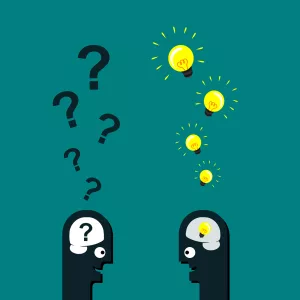*Be sure to read this before you retweet/post about the next #cancel party*
For most of us who spend a considerable amount of time on social media, cancel culture is nothing new. For those who are unfamiliar, the idea refers to withdrawing support from prominent figures who act in an unacceptable manner. In simple terms, cancel culture is closer to the idea of “shaming people into being better.” At least that is what research professor Brené Brown will argue.
Is cancel culture achieving its goals?
From making sexist or racist comments to voicing your opinion on politics and pop culture, almost anything can get you “cancelled. This is one of the various reasons why critics of this phenomenon argue against it. The idea has reached the point where it suppresses free speech by making people afraid to voice their opinion. They have fear of their beliefs being personally attacked.
On the other hand, people defend cancel culture and its harmful consequences as it acts as a counterbalance to authority. Arguably, most times, it is the only means of making those with more societal authority accountable for their actions. Politicians and government officials are not new to this movement, as they have been dealing with it for years. Smoothly surviving even most cancellation claims is due to resourceful media teams and a dedicated following. However, what is the case when the target is a simple individual who is not as powerful?
Cancel culture utilises the speed and reach of the internet to call out individuals on harmful or offensive actions. And it cannot be denied that in a multitude of cases it has been extremely useful. It helps targeting individuals guilty of assault, acts of racism and more. Yet, it can seriously affect individuals’s life and careers when they are identified as cancelled through popular recordings or posts.
“The modern boycott”
It has been famously said “the internet never forgets.” Especially nowadays, this quote holds. A simple screenshot of a later deleted Twitter post can be someone’s professional downfall. It is not rare that companies have to fire employees because their actions have caused them to be cancelled online. After this, individual’s struggled to find employment as companies do not wants to be associated to their behaviour. They will not risk prejudicing their reputation over an employee.
Indeed, when individuals are the targets of cancel culture, the consequences can be catastrophic. Just observe the falling numbers of Kylie Jenner and Hailey Bieber after their negative comments on Selena Gomez. But what about when a firm or a big corporation gets cancelled? This is where cancel culture becomes “the modern version of a boycott.” When a firm gets cancelled, the repercussions come in the form of the largest sale. The damage to their reputation not only will cost them sponsorships and partnerships, but also a severe drop in sales An example of the former is the wave of criticism that followed Balenciaga’s Gift Shop campaign, which featured children in bondage gear. The boycott of the brand’s products as well as the blow to its reputation were so severe that the owners are publicly looking for a crisis manager. They also admitted to great financial challenges post-controversy.
Using cancel culture for exposure
But is this phenomenon, which causes financial struggles for multi-million dollar companies, always bad for their reputation? The answer is not necessarily. After all, “all publicity is good publicity.” When someone embraces that atmosphere of negativity around them they transcend from a target to an outlaw. By adopting a rebellious attitude towards the spears of hate thrown at them, a cancelled subject can easily benefit from such a situation. This is subject to whether they manage to handle it in a way that serves their interests.
Joji—or, should I say, Filthy Frank—is a prime example of the former. It shows how one can go from cancellation to critical acclaim. After publishing repugnant content on his YouTube channel, Filthy Frank got cancelled on the platform. However, instead of finishing his internet fame, he used the traction gained to transform into a music figure. Initially known as “Pink Guy” and then more famously as Joji, he managed to turn his career around. His decision has been truly successful, as he is now multi-nominated and listened to by millions around the globe.
It is also possible that this chance of success alone causes many individuals to post controversial content, just to experience their 15 minutes of fame. When it is repeatedly observed that cancel culture can also bring benefits, many may try to get cancelled to gain attention online. I mean, we all want to be famous, even if it is only for 15 minutes. The reason this works is the “shock factor.” This is a powerful way to earn someone’s click by showing perturbing content that is atypic to the viewer’s feed. Unintentionally, one’s curiosity creates a platform for a culture that constantly gets bigger for the wrong reasons.
#wrap_up
The moral standings of cancel culture are divisive, as is the nature of the phenomenon itself. It is very difficult nowadays to determine whether an individual, a celebrity, or a firm is being cancelled for the right reasons or if it is all just a way to gain popularity fast. The only way for a common user to not lose their minds as this phenomenon continues to grow is to avoid becoming a victim of cancellation themselves: always check your sources and learn all the aspects of the story before you comment on it. But first and foremost, be mindful of what you post on social media. Just do a double take and ask yourself, “Would I like to be associated with this a year from now?” before pressing the “upload” button!
Featured Cover Image: Unsplash






